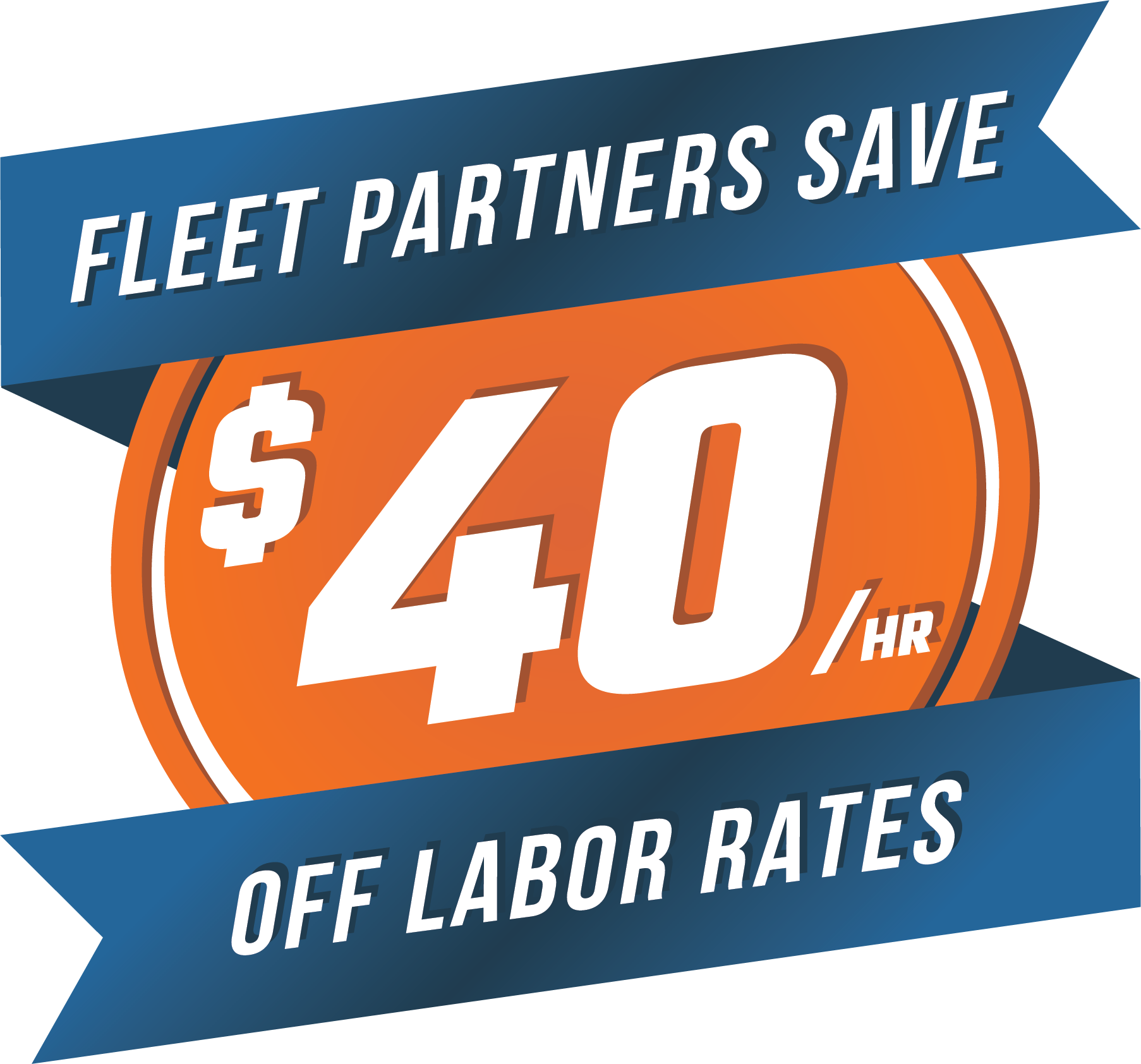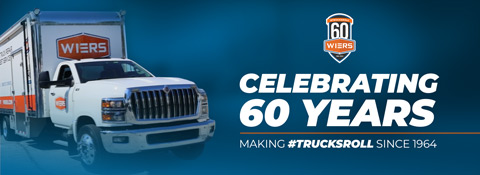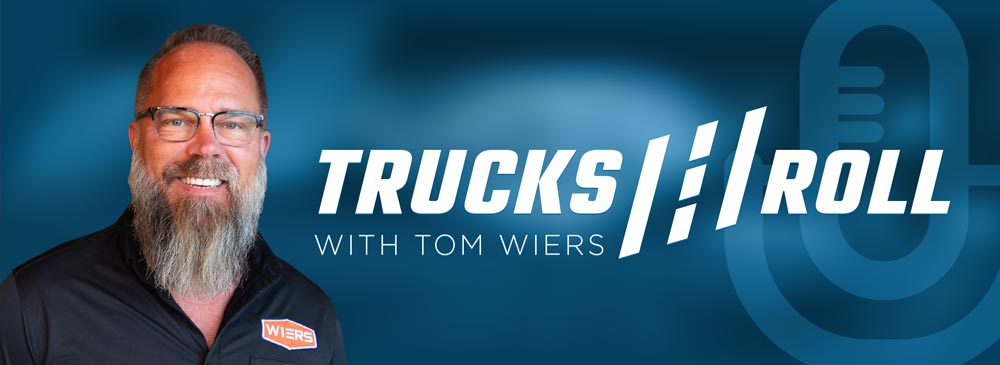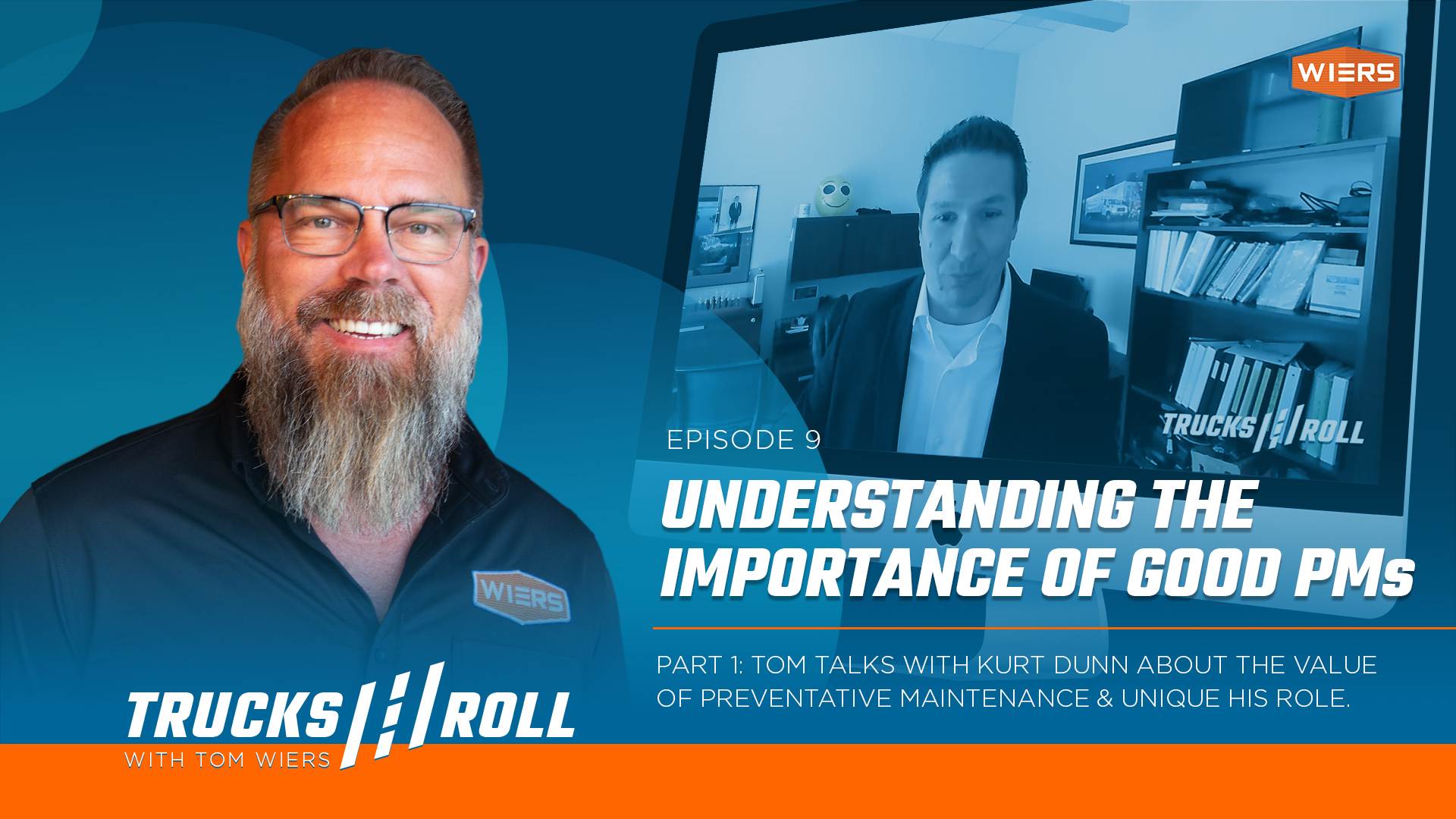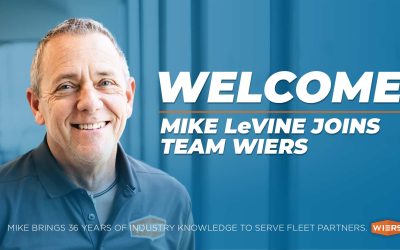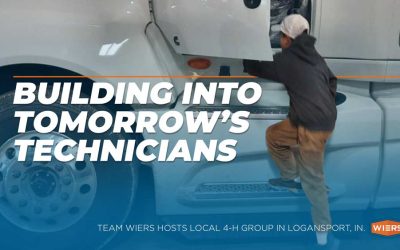
Understanding the Value of Preventative Maintenance – Trucks Roll, Ep. 9
Part 1: How The Diesel Industry is Adapting to New Technology
Pitt Ohio Passion for Technical Support
In part 1 of our interview with Kurt Dunn from Pitt Ohio, we discuss the value of preventative maintenance for the diesel truck industry. This episode will help you better understand some of the value of a good PM plan using data to help fleets make better decisions and have better uptime.
We at Wiers are experts and can help you keep your vehicles on the road so you can keep your customers happy.
Visit us at wiers.com today to learn more about our services and fleet partnership plans today!
What You’ll Learn
- A better understanding of who Pitt Ohio is and what they do.
- How Kurt’s unique role at Pitt Ohio is helping their fleets optimize their performance.
- How managing your fleet with better information helps inform better decisions and keeps your trucks on the road.
Here is the transcript for Trucks Roll Ep. 9:
Kurt: I think everybody in the industry would would agree that the industry has changed so much with emissions automated manual transmissions. We’re moving into a big change with electric vehicles and some of the other technology that’s coming down the pipeline and preventative maintenance has to change with it. I mean, off road maintenance is one of those things that it has to adapt.
Tom: Hi, everyone. This is Tom Wiers. And today I’m with Kurt Dunn. Kurt is the senior fleet technical advisor for Pitt Ohio. And Kurt and I met a couple of months ago down at TMC in Orlando. We sat on a panel together, had a great conversation. I really like what he had to say. I could sense his passion for his position and the people he works with. So I thought it’d be a great person to have have Kurt on the podcast today. So Kurt, why don’t you do a little just a quick intro and that the senior technical senior fleet technical advisor and what is that role at Pitt Ohio and how long have you been doing that?
Kurt: Thanks, Tom, and thanks for having me. So I’ve been at Pitt, Ohio 15 years. I’ve been the senior technical advisor for one year, and I was the fleet technical advisor for three years before that. So I have about four years of experience in the technical advisor role. It is somewhat of a unique role. As a technical advisor, we were brought in due to all the technical advancements. I think we all are very familiar with all the technology to thousands of current trucks. So we were brought in to support the mechanics.
Kurt: We have a day to day troubleshooting support, so we basically were our own internal tech support. Got it. So if we have an issue at any time with it, with a dealership, you guys are very familiar with the technical support. I’m sure you have our own internal technical support that we support our technicians kind of first level and we also do that. While we do that, we also do a training platform with that. So kind of a position that’s always moving. Everybody asks what I do and I’m like all hands on the day.
Kurt: It’s always moving. It’s definitely a moving target depending on depending on the day, but just really diving into everything technology.
Tom: Yeah. And that’s, you know, that’s great because as a fleet operation yourself, umm you’re seeing this, you know, we work with the OEM, obviously, and we’re getting information second and third hand sometimes. But you’re living on a day to day basis. I mean, usually if there’s something you guys can’t solve, then you end up at the OEM dealership and then we end up talking to the factory or something. But you’re seeing it firsthand. So that’s a that’s great. How long has that system been in place? This this platform you just described at Pit Ohio.
Kurt: So it’s been in place for about seven years now. It was started. It ran for about three years. And then the person who had the position before he moved on and I moved into that position. So we’ve been doing it for about seven years. Almost all of the are good majority of the emissions when the emissions are brought out in 07 and then got a lot worse in 10. Yeah. Brought on to, to kind of work through those, those challenges. Yeah.
Tom: You know one of my observations between a dealer meeting and Navistar and then TMC is that the amount of change that we’re going to be seeing in the next ten years. So I’m really going to want to hone in on, you know, all the things that you’ve learned with this platform over the last seven years, but then also how you see it, you know, impacting your operations going forward. But a little more about a Pitt Ohio: LTL carrier, right. 2023 locations. You can tell us a little more about the business and the size of the fleet and the type of equipment you’re operating.
Kurt: Absolutely. Yeah. 43 year old company, privately owned company, big on sustainability, big on employees. It’s a company that really looks forward. And we’re going to talk a little bit about that today. I’m going to talk, as you know, some of our practices with preventative maintenance, but really forward looking company.
Tom: What part of the country are you guys currently servicing?
Kurt: We’re based. So are our corporate building’s based out of Pittsburgh, PA. And we serve as Maine to North Carolina out to about Omaha, Nebraska.
Tom: Okay. Well, that’s a pretty good size footprint and growing. I’m assuming you’re there growing or dying, so.
Kurt: Yeah. Yeah.
Tom: Right, exactly. And do you have a particular part of the country, Kurt, that you deal with or are you all over?
Kurt: So as senior technical advisor, I work with all of the different entities. We have five different entities under the Pitt Ohio Transportation Group umbrella. I do work with all the entities. We do have a technical advisor who also works with me and he only oversees a couple of the fleets, only about two of the fleets under that umbrella.
Tom: And I think it’s worth noting, Kurt said right before we were jumped on the podcast that earlier today he was working on, working on the shop environment, had greasy pants and shirt on, so he picked up really nice floors and they even put up the happy sign in the background too. So we all remember how happy we should be when we work in the transportation and related services areas. So appreciate that. Tell us about preventive maintenance and what what you guys are doing today that maybe you weren’t even doing a couple of years ago. What have you learned over the last few years as it relates to preventative maintenance and how is that impacting your operation?
Kurt: Yeah, so I mean, I think as everybody in the industry would. We agree that the industry has changed so much with emissions, automated manual transmissions. We’re moving into a big change with electric vehicles and some of the other technology that’s coming down the pipeline and preventative maintenance has to change with it. I mean, over the road maintenance is one of those things that it has to adapt. You know, we have to maintain things different.
Kurt: We’ve changed. We recently just changed our preventive maintenance program and we changed it to be more efficient in a couple of different ways. We changed it to be more efficient from the equipment. We changed to be more efficient for the shop. So we really streamlined our process and something we’re really proud about. We actually did it in a way that we were able to efficiently make it more efficient for the shops, but also increase the maintenance in parts that were needed that needed more maintenance. So we use data to drive our maintenance program, our preventative maintenance program. And really, you know, the areas that we were seeing, you know, maybe failures prematurely, we were able to increase the maintenance on those areas and maybe pull back on areas where we didn’t see many failures and we felt like we we were over over maintaining that.
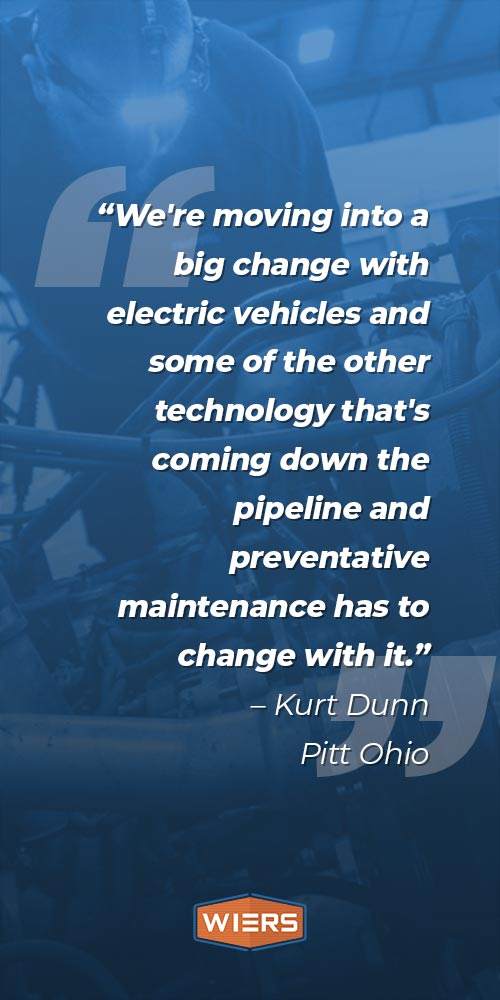
Kurt: So with all the different challenges we face, you know, the shortage is the labor, departure is sure to maximize our PM program and actually get a better program while being more efficient at the shop level.
Tom: Are you are you doing PMs today off of time or mileage or fuel consumption or what have you found in that area?
Kurt: We do. We do all of our PMs off of mileage.
Tom: Okay. I’m seeing more, you know, more fleets. And some of the some of the folks at Navistar are talking about using fuel consumption, which I think is quite interesting, especially in long haul application. But I’m I’m not so sure just because I don’t have the experience to understand, you know, some of those other like lift gates or other parts of the equipment that, you know, are necessary when you’re at a customer’s location or getting freight or whatever, they may, you know, how are those continuing to get maintained even though the intervals of I’d be stretched out 40, 50, 60,000 miles, so. That’s a that’s that’s pretty interesting stuff.
Tom: And then are you using are using a do you have particular telematics provider or system that you use and are using that data in order to help drive this these decisions as well?
Kurt: We use that we use the mileage reading from our telematics data and it in services or it integrates into our maintenance software and we use all the as it integrates in our maintenance software, we have all the schedules kind of predetermined in there. And while we’re talking schedules, it’s important all of our schedules are created through work with our OEM partners. So it was something there. It was a it was a six, eight month process for us to go through and working with our OEMs to really make sure that that using that partnership to really make sure that the schedule we picked was going to be the right one for our our fleet run.
Kurt: Kind of going back to like what you’re saying, international and some of the some of the OEMs are basing it off our fuel consumption.
Tom: Right.
Kurt: And they really dial that down. It’s really cool that they can dial it down to understanding about where that part is going to is going to be at the end of its life.
Tom: Yeah. Is there any particular like one component or as you’ve gone through this journey that you’ve really like as an example, you can share that the gosh, we, we never used to maintain this and we were having these issues and now it’s, it’s, it’s part of our maintenance program. Or is it just or it’s been more generic than that?
Kurt: I don’t know if I would say component or I guess I could because it’s the aftertreatment system. Okay. And everybody everybody in the industry knows that one, the aftertreatment system has added a lot to a preventative maintenance schedule. I think we have as many items preventative maintenance for the aftertreatment as we do for the rest of the truck, because it’s it’s that system that if something goes wrong, there’s a little bit bigger consequences to pay than, you know, if you have something leaking oil or something. So we on this latest schedule, we added a lot more than we had before with the Aftertreatment, a lot more checks, a lot more kind of diving in and finding out, you know, is that component good for another cycle or do we need to do need to go in and replace it now?
Tom: Are you getting more, I must say preventative, but are you getting more the ability to predict something or, you know, changing parts before they fail? Is that happening more often now than it was before?
Kurt: It is. It is. And we use a lot of data for that. We even use our software, kind of the replacement cycles of that. So along with inspecting the parts of the or the system to see if there’s a fault, we’re also using our data from our service side, from our maintenance software to see what the average replacement time of that item is. Because something where you it’s, you know, just to give mileage this part is, you know, failed. And we consider it to be like, okay, we want to make sure that part’s probably replaced before that.
Tom: Right.
Tom: So any you know, I think most fleets are looking for increased uptime and lower cost. Have you seen of have you been able to measure that? Have you seen the tangible results? Are you getting any kind of input from drivers or how do you how do you judge the success of your efforts?
Kurt: We’re actually in the process of that now. We have an intern this summer that’s going to kind of kind of prove it out for us. The system, the preventative maintenance system that we just put in place is about eight months old, nine months old. So we feel like now we’re starting to get enough data that we can start to prove it out. Between that nine month and one-year program, we are starting to prove it out with the with the intern working the summer. We did prove pretty early that our oil consumption dropped considerably with some of the new engine manufacturers pushing out through a little bit farther.
Kurt: We were a little bit behind the curve with that originally, so we were able to, you know, reduce our consumption and reduce our waste oil production, which was a big thing for us.
Tom: Yeah. And that moves in the sustainability piece as well. Not to mention, oil’s a little more expensive today than it was a year or two. So that’s that’s all good for the bottom line as well.
Kurt: Yes.
Tom: It’s a win, win.
Hey, thank you for joining in for this first conversation with Kurt Dunn. We’ve got more content coming up with him. But in the meantime, if you need assistance with your fleet maintenance, please go to wiers.Com. Check out our offerings. We’d be happy to talk with you and help your trucks stay on the road.
Links:
- Share your thoughts and connect with us on Facebook
- Check out more videos on Youtube
- Listen to the Previous Episode
